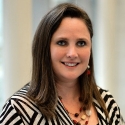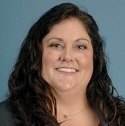Message From the Chair: Thomas Bergquist

Thomas Bergquist, PhD, LP, ABPP, FACRM; Chair, BI-ISIG
I am very honored and humbled to be the new chair of the Brain Injury – Interdisciplinary Special Interest group (BI-ISIG). I pride myself on being approachable, so right from the start I want to encourage everyone to feel free to contact me with any questions, concerns or ideas you might have. I am quite aware of the long history of this group and the many individuals who have served so capably over the decades. Our many task forces have been extremely productive, generating a long list of education materials, publications and practice standards, all of which have influenced our profession, and in many cases even altered the course of our field. Please read further to see some of what all they have done. All this work was done by the efforts of a team of individuals, volunteering their time to advance the field in which they practice and for which they have great passion. If you are not a member already, I strongly urge you to join one of our task forces to fully benefit from your membership in BI-ISIG. You will not regret it!
My involvement in this group dates back to the early 1990s. I will always be appreciative of the many individuals who encouraged and mentored me along the way. The work of the BI-ISIG has always been important and impactful. In an era when the science of health care is questioned and many are seduced by quick and easy answers to complex problems, this work is more important than ever.
Beyond the heavy lifting of conducting research, reviewing studies and publishing findings, perhaps our most important and daunting task is disseminating these findings, not only to our colleagues in the field, but to the public at large. I am committed over the next two years of my term as Chair to do everything possible to help make this happen. Thankfully, in this group as in brain rehabilitation more generally, this is a team effort. There are several new members who have recently joined the team of our executive committee whom I would like to introduce below.
 Chair Elect: Angelle M. Sander, PhD, FACRM
Chair Elect: Angelle M. Sander, PhD, FACRM
Professionally, I “grew up” in the BI-ISIG, as I have been a member since 1999, just after finishing Fellowship. The collaborations that I formed have been crucial for my growth as a researcher and clinician. I have served in many roles over the years, including member of the BI-ISIG Cognitive Rehabilitation Task Force, Clinical Practice Committee, Consumer Relations Committee, and Communications Committee. My leadership roles have included Chair of the Consumer Relations Committee (2010-2012) and Co-Chair of the Military Caregiver Task Force within the Military and Veterans Networking Group (2018-2019). Over my many years, I have witnessed positive growth and change of ACRM and the BI-ISIG, affording me a unique vision of past and present that can help to guide future growth. I have served as Principal Investigator or Co-Investigator for 18 federally funded grants, including two NIDILRR-funded Rehabilitation Research and Training Centers on Community Participation after TBI and four TBI Model Systems awards. I have led successful clinical trials of psychotherapy and cognitive rehabilitation and have participated in the development of patient-reported outcome measures for persons with TBI and their caregivers. I have created a variety of dissemination materials for persons with TBI, their caregivers, and rehabilitation clinicians, to assist with research translation. My work in these areas has been acknowledged by the Deborah L. Wilkerson Early Career Award from ACRM and the William Fields Caveness Award from the Brain Injury Association of America. I have worked as a clinical neuropsychologist, in inpatient and outpatient settings, since 2001. I have mentored many graduate students and Fellows who have established successful research and/or clinical careers. The BI-ISIG has always been at the forefront of working to establish and disseminate an evidence base to guide clinicians and researchers in improving the lives of people with brain injury. I am proud to have been part of this legacy and welcome the opportunity to lead this productive group into the next phase of brain injury rehabilitation.
 Secretary: Amanda Rabinowitz, PhD
Secretary: Amanda Rabinowitz, PhD
I am an Institute Scientist at the Moss Rehabilitation Research Institute, where I direct the Brain Injury Neuropsychology Laboratory. I am also Research Assistant Professor of Physical Medicine and Rehabilitation at the Sidney Kimmel Medical College of Thomas Jefferson University in Philadelphia, PA. A clinical neuropsychologist by training, my research focuses on cognitive and emotional consequences of TBI across levels of severity. I have particular interest in chronic moderate to severe TBI, including the psychosocial factors that influence recovery. I am also involved in the development and evaluation of mobile health interventions to help people with brain injury cope with cognitive and emotional changes. I conduct research on mild TBI/concussion, including studies on predictors of prolonged concussion recovery, and large population-based research on risks related to contact-sports participation in youth. My work has been funded by NIH, NIDILIRR, the Pennsylvania Department of Health, and the Defense Advanced Projects Agency (DARPA). I am the Project Director of the Moss Traumatic Brain Injury Model System. Since joining ACRM in 2016, I have been involved in the BI-ISIG as an active member of the Mild TBI and Chronic Brain Injury Task Forces, contributing to multiple projects. This led to an article for a special issue of the Brain Injury Professional on chronic brain injury and developing and contributing to Information/Education Pages for Archives of PM&R. I am also collaborating with other members of the Mild TBI Task Force on an effort to revise the ACRM definition of mild TBI.
 Communications Officer: Mary Beth Russell DO, MS, CLCP
Communications Officer: Mary Beth Russell DO, MS, CLCP
As a Physical Medicine and Rehabilitation physician and Brain Injury subspecialist, brain injury medicine and the interdisciplinary mission of the ACRM and the BI – I SIG are very interesting to me and my clinical research interests. Before I went to medical school, I completed my Masters in biomedical engineering. I joined the ACRM in 2015 as a new attending and then was drawn to the inter-disciplinary collaboration with other clinicians, research and science. I found that the collaborations, task forces and annual meetings extremely valuable. I look forward to continued involvement in the BI – ISIG. I have worked with Dr. Monique Pappadis on the BI-ISIG communication committee as Associate Editor. My work in leadership positions has helped foster the skills necessary to be the communications officer. I’m currently Assistant Professor of Physical Medicine and Rehabilitation at the University of Texas Health Science Center at Houston and Medical Director of TIRR Memorial Hermann- The Woodlands. My work has involved collaboration and communications across multiple specialties and disciplines; as well as, involvement in policy, program development and accreditation processes. The future of brain injury medicine, including research and clinical care, has tremendous opportunity and exciting times ahead.










